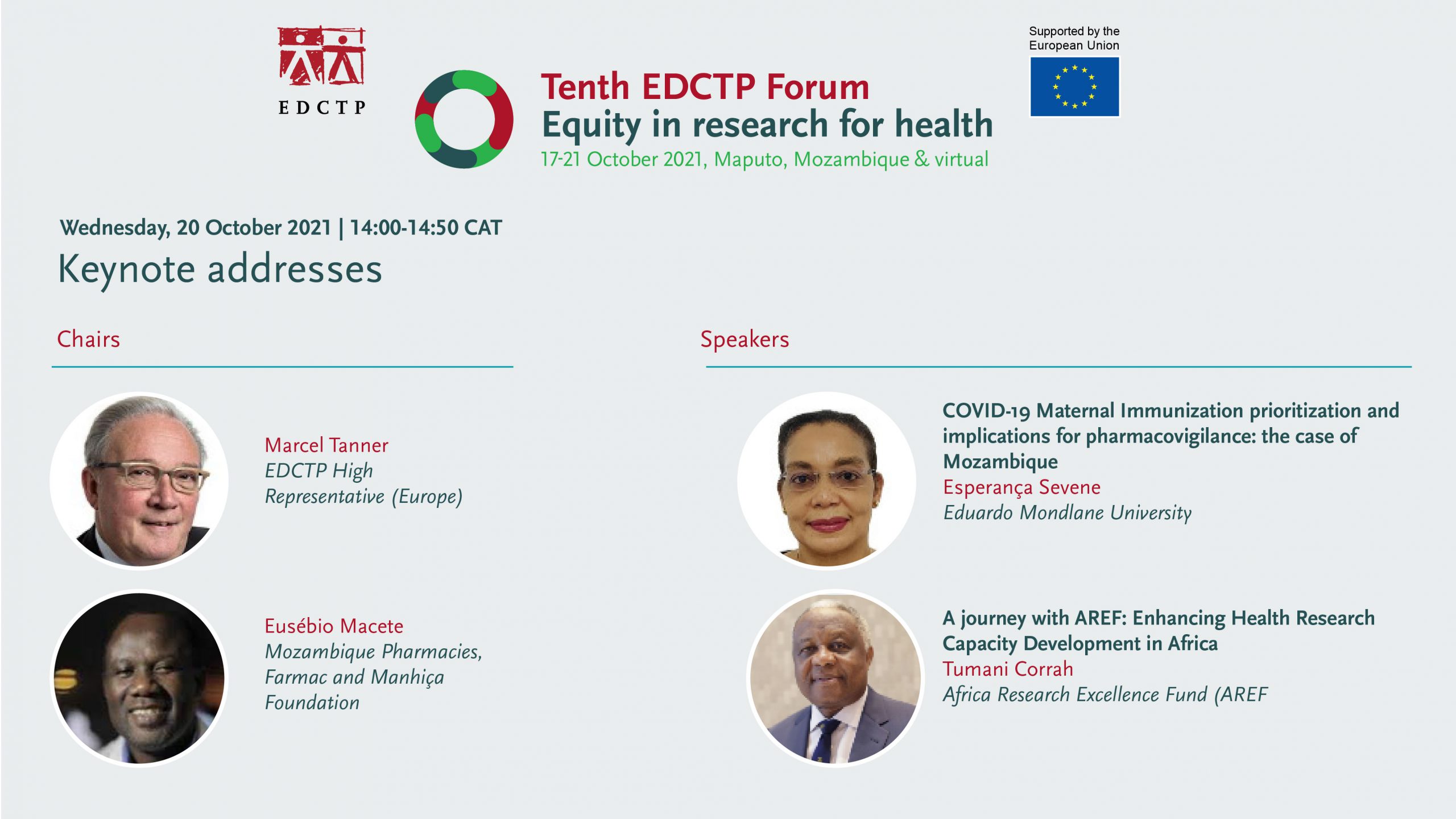COVID-19 Maternal Immunization prioritization and implications for pharmacovigilance: the case of Mozambique
By Paul Chinnock
Esperança Sevene, clinical pharmacologist at Eduardo Mondlane University (Mozambique), outlined her presentation, which would look at: COVID-19 in Mozambique, the national immunisation plan, vaccines received, coverage, the decision taken on maternal immunisation, the implications for pharmacovigilance, pending issues, and the lessons learned.
Dr Esperança presented data showing the cumulative number of COVID-19 cases in Mozambique to be 150.985, with 1,922 deaths. (Mozambique’s population is around 30 million.) There have been three waves, each one more severe than its predecessor. The second wave mainly involved the alpha variant but the third has been predominantly with the delta form. Data on COVID-19 prevalence in pregnant and lactating women in Mozambique is scarce.
In February 2021 the national plan for immunisation was launched, with the aim of vaccinating 55% of the 15 million target population. At this stage the target group excluded children under 15 years and pregnant and lactating women (P&LW). It was decided to reconsider the position for the excluded groups once more safety data became available. (Since the publication of the plan, there have been guidelines issued by WHO, CDC, the EU and the International Federation of Gynaecology & Obstetrics) to assist decisions as to whether to add the excluded groups to national programmes.)
Priority groups for vaccination in Mozambique were set out in the following order: health professionals, people with chronic diseases, people over 50, essential workers outside the health sector, other vulnerable groups.
In August 2021 only 4 million vaccine doses were available in Mozambique, with 3.6m expected in September-October and 8.8m by early next year. This will total 11.4 million – still not enough for the targeted 15m population. The acceptability of the vaccines has been high, averaging at 91%.
During Mozambique’s third wave, clinicians started to report severe COVID-19 cases in pregnant women, with higher rates of hospital admission and death. Subsequently, the results of discussions (involving the Maternal and Child Health programme, the National Public Health Directorate, the Mozambique Association of Gynaecologists & Obstetricians, and the Medicines Regulatory Authority) were presented to the National COVID-19 Commission. It was recommended to use the vaccine in P&LW and to establish the necessary strategy to include them in the next round of immunisations, planned to start October-November 2021.
The decision has implications for pharmacovigilance. Dr Sevene summarised the Mozambique system for AEFI reporting adverse events following immunization (AEFI). This system has till now not had links with Maternal and Child Health programme. She detailed the data so far available on COVID-19 AEFIs in Mozambique. With 2.5m doses administered, 1619 non-serious and 16 serious AEFIs have been recorded. The rate seems to be similar to that reported from other African countries.
WHO recommends that immunisation programmes should incorporate surveillance of women who have been vaccinated during pregnancy. Both active and passive surveillance approaches are recommended – reliance on spontaneous reporting would result in under-reporting. It will be necessary to establish sentinel sites for surveillance. Antenatal clinics could be a good entry point.
There will be a need for additional vaccine doses to be able to include P&LW in the programme. Data collection, active safety surveillance, community engagement and communication must also all be improved.
Dr Sevene concluded with the lessons already learned: evidence now supports the inclusion of P&LW, the severity of the COVID-19 waves led to a discussion on maternal immunisation, policy briefs and updates can accelerate the decision making process.

